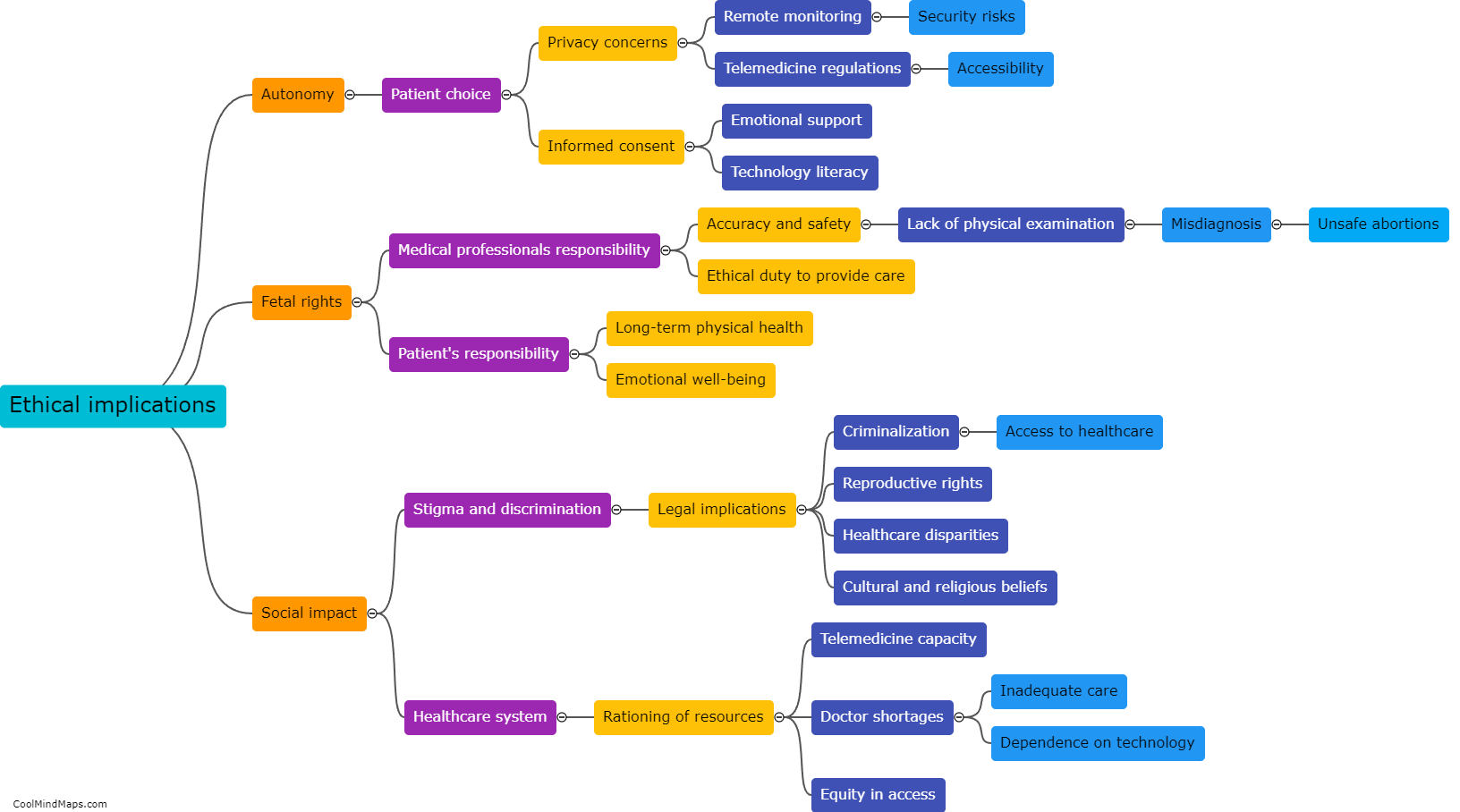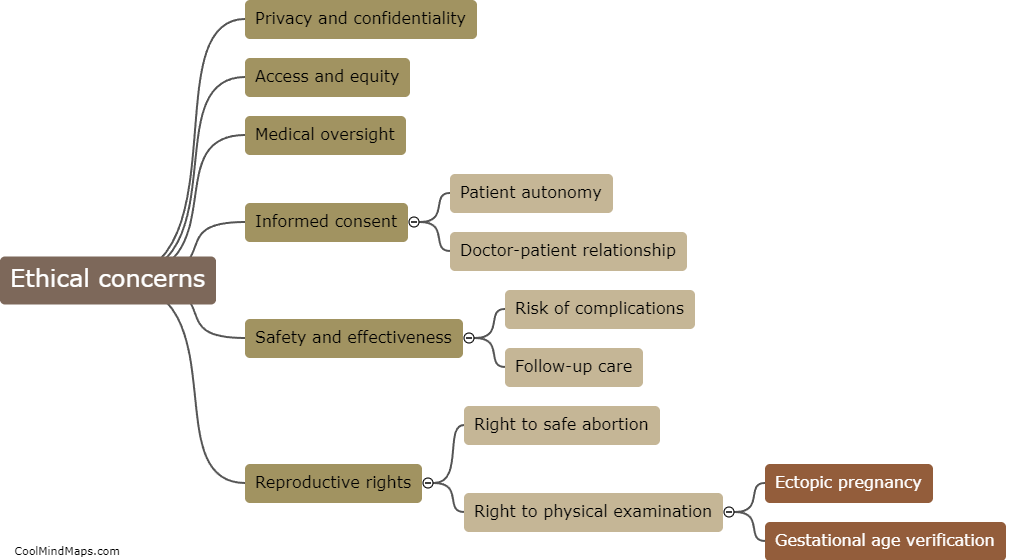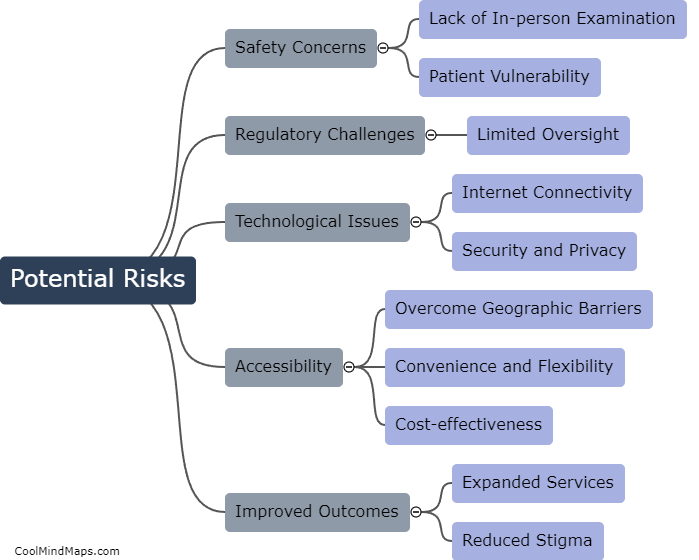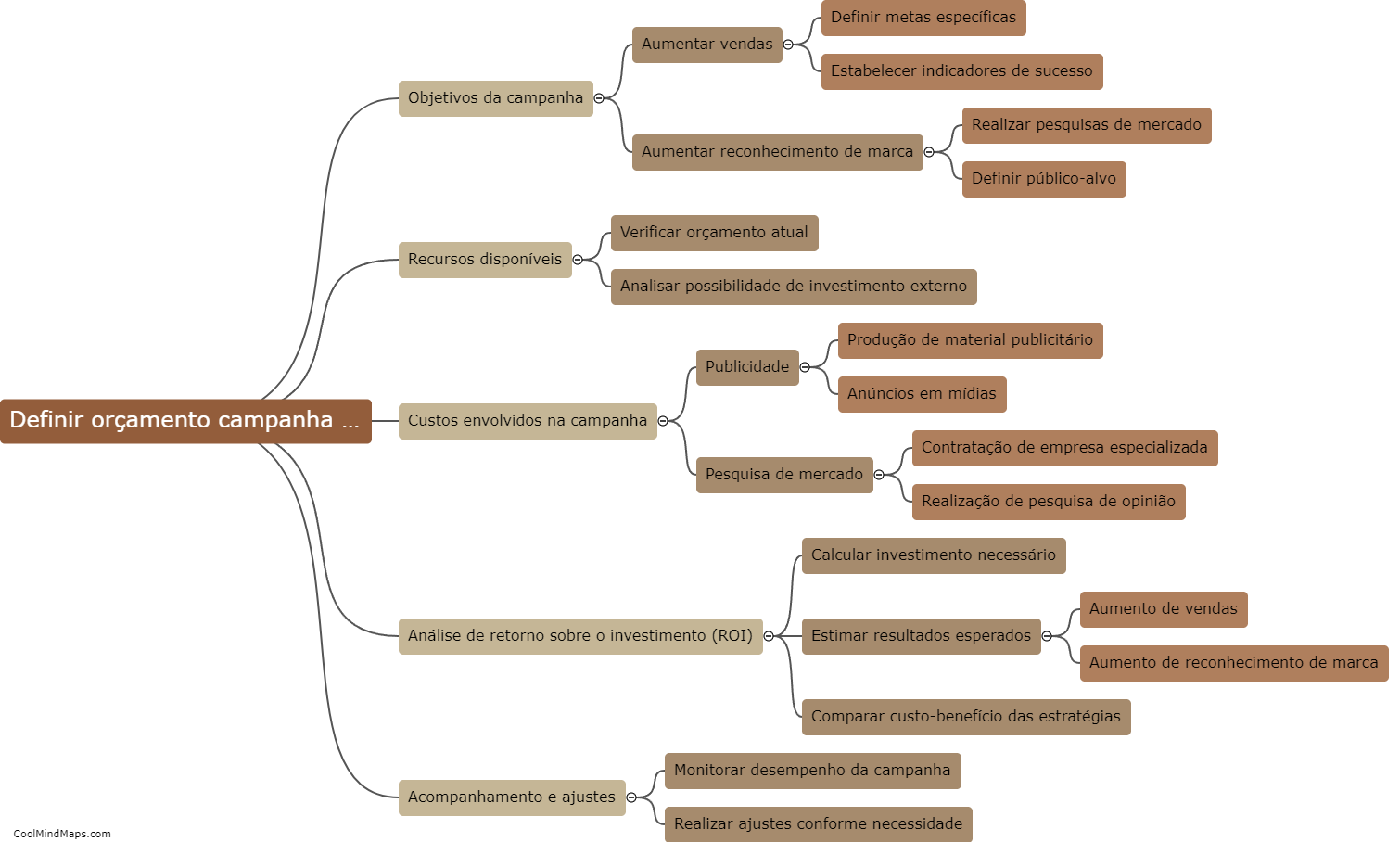What are the ethical implications of remotely administering abortions?
Remote administration of abortions, also known as telemedicine or teleabortion, raises significant ethical considerations. Advocates argue that it increases access to reproductive healthcare, especially for women in rural areas or areas with limited abortion services. However, critics express concerns over the lack of in-person medical supervision, proper healthcare standards, and potential safety risks. Ethical implications arise regarding informed consent, privacy, and the potential for misuse or coercion. Additionally, questions about the doctor-patient relationship and the emotional support provided during the abortion procedure come into play. Balancing these concerns with the benefits of increased access requires a thoughtful examination of the potential impacts on women's health, autonomy, and overall well-being.

This mind map was published on 4 September 2023 and has been viewed 87 times.











